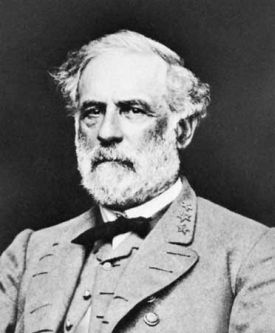Responding Unkind
From The New CriterionLawrence Summers
A pointed dissent, written by a theologian, from my February column on God and the tsunami was received by The New Criterion a few weeks ago, and I happily set about composing my doubtless crushing reply until the editors informed me that the author did not wish his letter to be published. That of course, made the crushing reply otiose, and I regretted the loss of my fine phrases and biting ironies the more as the letter appeared to me quite pointless unpublished.
But I was reminded of how seldom anyone ever bothers to answer what are — let’s face it — the mostly disparaging remarks I make about my fellow scribes in these pages. I should like to imagine that this curious silence is owing to the definitiveness of my put-downs. The word is out, I fantasize, that once Bowman has animadverted upon one’s journalistic and human failings, one might just as well crawl into a hole somewhere, get a job at the take-out window of Wendy’s and never again say anything more controversial than, “You want fries with that?” But, alas, it is not so. Month after month for more than a decade now I have been excoriating such hapless victims as Maureen Dowd, Frank Rich, Tina Brown, Dan Rather etc. — to say nothing of the generality of the reporters, editorialists, columnists and reviewers at the New York Times, the Washington Post and most if not all of the major television news operations — and yet they have continued all the while unperturbed in their courses. Never once has any of them uttered so much as a word of protest. Much as I’d like to think that they had no comeback to my devastating criticisms, I can’t quite believe it.
If I were in their position, I would be unable to resist the temptation of slapping down an upstart like me who fancies himself an intellectual match not only for highly credentialed theologians but even for the grandees of the New York Times’s op-ed page. Yet they do not feel it, apparently, and the affectation of indifference also has its own and unmistakable message, which is that, although I and my fellow toilers in the little sealed-off world of what those who man the commanding heights of the culture see as right-wing journalism may read them, they don’t read us. Every now and again an Ann Coulter or a John O’Neill will say something so outrageous that they have to take notice, but then of course they have the excuse of its outrageousness for dismissing it. Sometimes I can understand why, given the choice between being summarily and angrily labeled a fool, a bomb-thrower or a maniac and simply being ignored, some people would choose the former over the latter. It is a way of breaking through, at least for a moment, the frustration one naturally feels about the fact that we engage with them all the time and they never engage with us. Or almost never.
The last time The New Criterion received a stinking letter about me was — I think I’m right in saying — back in 2000 when I had occasion to say something censorious concerning a book about the Clinton scandals by Joe Conason and Gene Lyons called The Hunting of the President. That ended up not being published either — I forget why — though I had in that case also composed a reply. I might have wondered why the memo never went out from conspiracy central to Conason and Lyons about pretending that the New Criterion doesn’t exist but for the fact that, through an oversight on the part of the editorial staff at the “Book World” section of The Washington Post, I had been asked to review the book for a mainstream publication. That was something, it seemed, they could not ignore. It then became necessary for the tag-team of Conason and Lyons to squash me like a bug wherever I might pop up and mention their names. Theirs had seemed to me to be a bad and silly book, but in my review I had gone out of my way to say that it made an important — indeed, an essential — point about the conduct of politics and journalism in our time and was only marred by a partisanship quite as bitter as that of the Clinton-haters they were attacking.
Did they thank me for this? You’ll scarcely credit it, but they did not. On the contrary, Conason complained long and loudly, not about anything I had written but about the fact that I had been allowed to write at all for a publication such as the Washington Post. As I reviewed movies for the American Spectator, and as the Spectator’s Clinton-coverage, in which I had never taken any part, was among his targets in the book, in his mind it followed as the night follows the day that the Post had committed a journalistic sin in even extending to me the hospitality of its pages. Eventually, the Post’s then-Ombudsman, who could find no fault with anything I had written in the review but only with my writing for a magazine other writers for which had been among Clinton’s critics, was moved to agree with his complaints. It looked to me as if the subtext of this judgment, as of the complaint which inspired it, was that I had no business publishing anything in the pages of The Washington Post. That was their territory.
Some such proprietorial feeling about the media culture was what lay behind the furious reaction by many on the left to what the self-important subject of the would-be scandal himself called “Gannongate.” This was one James D. Guckert, whose nom de plume as a blogger and writer for a minor news service called Talon News, financed by a Texas millionaire and Bush contributor, was “Jeff Gannon.” Called on by President Bush at a news conference, Gannon asked such a sympathetic question that he instantly stood out in media company and came under investigation, whereupon he was discovered to have advertised his sexual services on several gay websites and to owe $20,000 or so in back taxes to the IRS. Taken together with the fact that officials of the administration had paid several journalists, and those they thought might look like journalists, to promote its policies, the liberal media thought it had caught the scent of scandal. Both of the New York Times’s terrible two, Frank Rich and Maureen Dowd, hinted at comparisons to Watergate. Always rhetorically the first over the fence, Miss Dowd wrote that “Even the Nixon White House didn’t do anything this creepy. It’s worse than hating the press. It’s an attempt to reinvent it.”
Well, you can understand why, from her perch on the New York Times op ed page, such an attempt might seem scandalous to Maureen Dowd, but those of us with less to lose from such a re-invention may take a different view. Frank Rich got not one but two (so far) of his mammoth Sunday columns out of his own sense of outrage, writing that “Talon’s ‘news’ often consists of recycled Republican National Committee and White House press releases.” Funny, but that is just what I was thinking about the New York Times’s editorial page which, if we didn’t know better, anyone might swear recycles press releases from the Democratic National Committee. Of course, the Times’s withers are unwrung by such a charge because it is, unlike Talon News, what Mr Rich calls a “real” news organization and its White House reporters, unlike Mr Gannon-Guckert, “real” journalists. But what is the difference between a “fake journalist” like him and a “real” one? Surely it can’t be that the former is a shill for some political party and the latter not, since Rich himself, who presumably thinks of himself as a “real” journalist, is every bit as reliably Democratic in his sympathies as Mr Guckert is Republican, his questions for the president as predictably hostile as the other’s are friendly.
The official answer has to do with journalistic “professionalism,” an argument so threadbare by now that Rich doesn’t even bother to make it, presumably relying on his readers to take it for granted. Why wouldn’t they? They certainly wouldn’t know from reading Frank Rich that anyone has ever questioned that view of the matter, which is why he himself can hardly be aware of the self-righteousness in his I-thank-God-that-I-am-not-as-these-sinners pose. And yet perhaps just the shadow of a doubt has begun to creep in. Beginning with a not-untypically ludicrous hyperbole — “the inability of real journalists to penetrate this White House” — he goes on to surprise himself with a tiny concession to the enemy. This “inability,” that is,
is not all the White House’s fault. The errors of real news organizations have played perfectly into the administration’s insidious efforts to blur the boundaries between the fake and the real and thereby demolish the whole notion that there could possibly be an objective and accurate free press. Conservatives, who supposedly deplore post-modernism, are now welcoming in a brave new world in which it’s a given that there can be no empirical reality in news, only the reality you want to hear (or they want you to hear).
“No empirical reality” is a lot further away from “objective and accurate” than either I or, I suspect, my fellow post-modernist conservatives would care to travel, but it suits his book to pretend that these are the stark alternatives. And why should he not? Who would ever have gathered from reading Frank Rich that there could exist a serious critique of his idea — if he still has such an idea — of journalistic “objectivity”? That he does not was suggested by his subsequent column on this subject, in which the decadent journalistic culture represented by the hapless Mr Gannon was contrasted with the now-lost ideal symbolized for him by none other than the late Hunter S. Thompson, a recent suicide. Now there’s “objective and accurate” for you!
Such are the absurdities to be expected from the works of those who write only for those who agree with them. There may be similar ones to be found in my writing for all I know since, willy nilly, I do the same. Some on the right are as eager as those on the left to shut out views with which we disagree. The editor of the book review section of a conservative publication once told me that he always expected to know in advance what his reviewers were going to say about the books they reviewed. Why should we give heterodox opinions a forum in “our” publications? Don’t they have their own to go to? There must be something to be regretted, even if one were not spoiled by it, in the fact that the only complaint in five years about anything I have written here has come from someone on my own side of the “culture wars” who is under the mistaken impression that I had called him a liberal. I have always tried to avoid talk of the “culture wars” myself. That kind of overheated metaphor has a way of becoming a self-fulfilling prophecy. That people can disagree with each other, even about very important things, without going to “war” over it is the very foundation of civil society, from which all our material blessings descend. If you want to see a culture war, go to Baghdad.
Yet it is also true that with each year that passes we seem to find ourselves more and more driven into one or the other of two hostile camps. Even if there is no war, it is only because the two armies refuse to have anything to do with each other. One unexpected consequence of this state of affairs is that public controversies are often intramural, the most bitter of them occasioned when a member of the liberal cultural ascendancy makes the mistake of voicing an opinion that seems to belong to Those To WhomWe Do Not Speak on the conservative fringe. That is what happened in January to Lawrence Summers, the President of Harvard University and a former Treasury Secretary in the Clinton administration, who foolishly ventured to remark to a conference on “diversity” in the fields of science and engineering that there might be some evidence to suggest that there were congenital differences in the mental make-up of men and women. If so, the fact might help to explain — together, of course, with the usual culprits of “sexism”, “discrimination” and “bias” — the over-representation of men in those fields and the under-representation of women. Beginning with a female attendee at the conference who reacted like a refined Victorian lady to coarse language, claiming that she had to leave the room before she vomited or blacked out, Summers came under ferocious assault from both outside and, more significantly, inside Harvard, and was forced to issue progressively more groveling apologies in order to keep his job.
As a matter of scientific fact, Summers’s pre-apology opinion could neither be confirmed or denied. Nor could anyone be very hopeful about its prospects for being so, at least so long as the question is as politically fraught as his experience showed it to be. The real point so far as his detractors were concerned, and the reason for his repeated apologies was that he had broken ranks with the liberal consensus. Something called the Caucus for Gender Equality at Harvard, in fact, criticized Summers for, of all things, “speaking his mind as an individual.” To such people, Summers had given momentary credibility to views that would otherwise have been treated as if they did not exist — except in the superstitious imaginings of Christian fundamentalists and what Al Gore once described as the “extra-chromosome right wing.” Only a complete retraction and, in effect, a denial that the matter was even worthy of scientific investigation would satisfy them. I was told by someone present at the Harvard faculty meeting on the subject — someone who had put his name down to speak but was not called on — that the thing had been arranged so that the only pro-Summers comments allowed were those which stressed either his contrition or how much he had done for Harvard. No one spoke up on behalf even of his right to an opinion, let alone in defense of the offending opinion at issue. The words “academic freedom” were never mentioned.
The idea in the minds of the liberal censors was that such views as Summers had mistakenly expressed would have damaged the university if not swiftly and unequivocally retracted, though of course the reverse was the case among some of us bemused observers on the right-wing fringes. “If you were a woman scientist and had two competing offers,” the New York Times quoted Mary C. Waters, chairman of the sociology department at Harvard, as asking, “and knew that the president of Harvard didn’t think that women scientists were as good as men, which one would you take?” And, I wondered, if you were contemplating taking up an appointment in the Harvard sociology department and saw that quotation’s wilful distortion of what Summers had said — and if you were not an ideological monomane yourself — would you take it? It doesn’t seem to me to say much for the intellectual calibre of the institution either that it is closed off to inquiry, even if the idea is as wrong as Summers’s detractors insist, or that a department head is apparently incapable of understanding a simple argument. The New York Times could do no better, noting that Summers had said “that innate sex differences might leave women less capable of succeeding at the most advanced mathematics.”
The implication that a particular woman scientist would be less capable of doing her job than a man because of “innate sex differences” is entirely the contribution of the Times’s correspondents (Sam Dillon and Sara Rimer, in case either of them wishes to write to me) and is nowhere to be found in what Summers had said, which was only that women in the aggregate were less likely to choose scientific careers because of such differences — among other reasons. But the fear and loathing his remarks had inspired had also been so great as to attach to them, in the eyes of many feminist ideologues, a whole panoply of allegedly “patriarchal” opinion associated with the never-to-be-mentioned or listened-to opposition that he could not possibly have intended. One consequence of refusing to speak to the other side, and not an unintended one, is of course that you don’t have to answer the arguments the other side actually makes but only the ones you paraphrase and, unless you are very scrupulous, in paraphrasing caricature. It’s always easier to demolish a straw man than a real opponent, but there’s not much intellectual honor in it — even when, as it sometimes seems, one’s opponents seem to want to turn themselves into straw men — and women.
Discover more from James Bowman
Subscribe to get the latest posts to your email.







